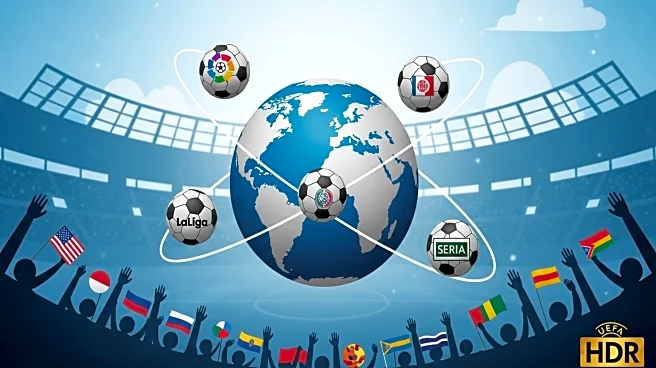What is the story about?
What's Happening?
UEFA is facing a significant decision regarding the future of European football as it considers allowing La Liga and Serie A to host domestic matches abroad. This proposal, if approved, would permit Barcelona and Villarreal to play a fixture in Miami this December, and Milan and Como to play in Perth, Australia, next February. The decision is set to be made by UEFA's executive committee, with FIFA having the final say. The move has sparked controversy, with some viewing it as a threat to the traditional fabric of European football. The Bundesliga has expressed opposition, while other leagues are still deliberating their stance.
Why It's Important?
The potential approval of hosting domestic matches abroad could set a precedent that fundamentally alters the landscape of European football. It raises concerns about the commercialization of the sport and the impact on local fanbases. The financial incentives for leagues like La Liga and Serie A are clear, as they seek to expand their global reach and compete with the Premier League's dominance. However, this move could alienate traditional supporters and disrupt the cultural roots of the sport. The decision could also influence future policies regarding the globalization of football.
What's Next?
If UEFA approves the proposal, FIFA's council will likely discuss the matter in October. The decision could lead to further legal and regulatory challenges, as well as potential backlash from fan groups and football associations. UEFA may need to revise its statutes to address the implications of hosting matches abroad. The outcome could also prompt other leagues to consider similar moves, further shifting the dynamics of international football.
Beyond the Headlines
The debate over hosting matches abroad touches on broader issues of cultural identity and the commercialization of sports. It raises ethical questions about prioritizing financial gains over the interests of local communities and fans. The decision could also impact the relationship between European football authorities and global promoters, potentially leading to long-term shifts in how the sport is governed and marketed.















